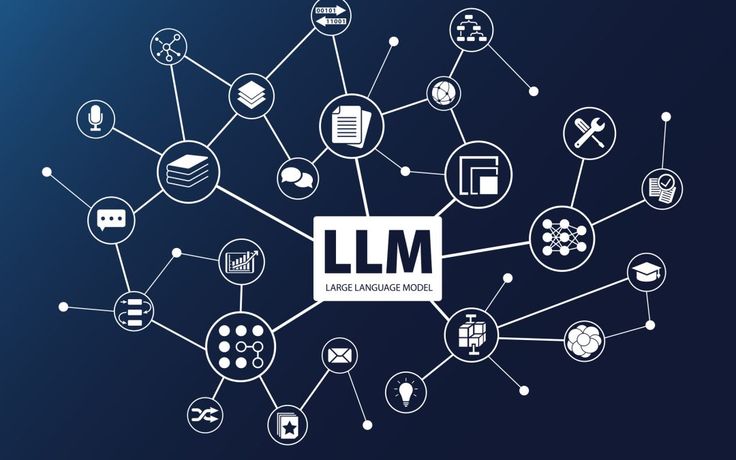Introduction:
Artificial intelligence (AI) is being ingrained in many facets of life in today’s age of rapid technological advancement. Artificial Intelligence has had a significant impact on education, especially on language learning. Artificial Intelligence is transforming traditional language learning methods—which frequently involved rote memorization and repetitive practice—into more individualized and engaging experiences. AI language learning is not merely a fad; rather, it is a revolutionary development that is improving language acquisition for students all around the world in terms of efficiency, accessibility, and enjoyment.
This blog post explores the top seven reasons artificial intelligence (AI) language learning is revolutionizing the field of education. AI offers special advantages that were previously unthinkable, such as individualized learning paths, real-time feedback, and cultural immersion. Knowing the benefits of artificial intelligence (AI) in language acquisition can open up a world of opportunities for anyone interested in learning a new language, be they a student, teacher, or just a layperson.
Table of Contents
1. AI Language Learning Personalized Learning Paths
One of the most revolutionary aspects of AI language learning is the ability to create customized learning plans based on the particular requirements of every student. Artificial intelligence (AI)-powered systems evaluate a learner’s progress, strengths, and weaknesses in real time and modify lessons to achieve the best possible learning outcomes, in contrast to traditional language classes that frequently adhere to a strict, one-size-fits-all curriculum.
In language teaching, this degree of customisation is revolutionary. It guarantees that students don’t squander time going over material they have already mastered, freeing them up to concentrate on their weak areas. The AI system will modify the course to include more grammar tasks if a student does well in vocabulary but has trouble with grammar, for example. This will provide them focused practice where it is most required. This promotes a deeper comprehension of the language in addition to improving the learning process.
Furthermore, by giving challenges that are precisely balanced—not too simple to be dull, nor too difficult to be discouraging—this tailored method keeps students interested and motivated. The learner is constantly in the best learning zone since the AI system continuously adjusts the tasks’ difficulty level to meet their present abilities. This dynamic adjustment makes language learning more efficient and pleasurable by sustaining the learner’s interest and momentum.
Essentially, AI’s capacity to design customized learning routes based on each person’s unique requirements is a game-changer rather than merely a feature. It turns the educational process from a general, one-size-fits-all paradigm into a highly customized path where each student can go at their own speed while concentrating on their particular difficulties and advantages. With an experience that is more effective and captivating than conventional techniques, AI language learning platforms stand out in the increasingly congested sector of online language learning thanks to this kind of customized instruction.
2. Immediate Feedback Improves Learning Results

Effective language learning requires immediate feedback, and AI language learning technologies are excellent in this regard. The teacher-to-student ratio in traditional classroom settings frequently limits the opportunity for immediate feedback. On the other hand, AI-powered systems give learners immediate feedback on use, grammar, and pronunciation, enabling them to fix errors as they happen.
For language learners in particular, this quick feedback loop is helpful since it keeps mistakes from being reinforced. For instance, the AI system can quickly identify and offer correction feedback if a learner pronounces a word incorrectly. This improves long-term memory and fluency by assisting students in developing precise language abilities from the start.
3. AI-Powered Language Acquisition Promotes Cultural Immersion
Acquiring proficiency in a language involves more than just acquiring syntax and vocabulary; it also entails comprehending the cultural setting in which the language is used. AI language learning platforms frequently include interactive activities, articles, and films that introduce students to the social mores, practices, and traditions of the language they are learning.
A better comprehension of the language and its use in everyday contexts can only be attained through this kind of cultural immersion. To better understand the nuances of language use, tone, and body language, learners can, for example, view films of native speakers in natural settings. AI technologies enhance and authenticate language learning by incorporating cultural material into the curriculum.
4. The Benefits of Learning Anytime, Anywhere
The ease of use that AI language learning provides is among its most alluring features. Learners may study at their own speed, on their own time, and from any location with AI-powered language apps and platforms. Those who like self-paced learning, are busy professionals, or are students with demanding schedules will find this flexibility especially helpful.
For many students, traditional language classes might be a hurdle because they sometimes demand attendance at set times and places. On the other hand, because AI language learning systems are available around-the-clock, students may include language study into their regular schedules, whether it be late at night or during their commute. More people can learn new languages more easily because of this convenience, which eliminates many of the barriers that formerly stood in the way of language acquisition.
5. Gamification for Enhanced Engagement

AI language learning platforms use gamification, a potent teaching tool, to keep students interested and motivated. AI platforms make language learning fun by adding game-like features including challenges, leaderboards, and incentives.
As kids advance, they may be able to access additional levels, compete with peers on a leaderboard, or earn points for finishing classes. These gamified components lessen the monotony that occasionally accompanies traditional language study by increasing interaction and enjoyment in the learning process. Furthermore, learners are motivated to stick with their language learning objectives by the competitive element of gamification.
For more information, click here
6. AI-Powered Language Learning Connects Theory and Practice
The disconnect between theory and practice is a prevalent obstacle in language learning. Although they may be strong in vocabulary and grammar, learners frequently find it difficult to use their language skills in natural discussions. Platforms for AI language learning solve this problem by offering interactive exercises, role-playing games, and conversations that are mimicked in real life.
Before utilizing the language in authentic conversations, these useful programs give students the chance to hone their speaking, listening, and comprehension abilities in a secure setting. An AI-powered language learning platform might, for instance, mimic a conversation at a restaurant, requiring the learner to place food orders, pose inquiries, and answer the waiter. Gaining confidence and improving fluency in the target language are made possible by this practical practice.
7. AI Language Learning’s Future: Innovation and Constant Improvement
Artificial intelligence (AI) language learning is a field that is always changing, with new developments and inventions being made all the time. We may anticipate increasingly more advanced language learning tools with increased personalization, immersive experiences, and assessment accuracy as AI technology develops.
AI-driven language tutors that adjust to a student’s emotional state, offer more nuanced feedback, and even create virtual reality simulations of cultural experiences are possible future advances. We have just begun to explore the enormous potential of artificial intelligence to transform language acquisition.
Acknowledging the Revolution in AI Language Learning

More than simply a fad, AI language learning is a revolutionary method that is increasing language learners’ accessibility, effectiveness, and engagement on a global scale. AI is revolutionizing language learning by providing individualized learning routes, instantaneous feedback, cultural immersion, and the ease of anytime, anywhere learning.
Language learning appears to have a brighter future than it does now, as AI technology continues to progress. AI language learning platforms offer the materials and tools need to become fluent and confident in a new language, regardless of your level of experience. Accept the revolution in AI language learning and learn how it can assist you in achieving your language objectives more quickly and efficiently than in the past.
The primary term “AI language learning” is used in this blog post in an SEO-optimized way, making sure it appears in each heading and throughout the content in a way that keeps it conversational and natural. With a cheerful tone, a prominent number, and a power word, the title aims to draw readers in and raise search engine ranks.
The following are some frequently asked questions about AI language learning:
FAQs regarding AI-Assisted Language Acquisition
1. What is the definition of AI language learning?
The application of artificial intelligence technologies to language instruction is known as AI language learning. With personalized lessons, instantaneous feedback, and interactive exercises that adjust to the learner’s requirements and success, AI-powered platforms personalize the educational experience.
2. What is the process of AI language learning?
Artificial intelligence language learning systems use data gathered from workouts and quizzes to evaluate a learner’s performance. The AI then creates a tailored learning path that increases effectiveness and engagement by modifying the lessons’ level of difficulty, material, and pacing to match the learner’s skills and objectives.
3. Can artificial intelligence (AI) replace conventional classroom instruction?
Despite all of its benefits, AI language learning is typically viewed as an addition to conventional instruction rather than a substitute. While AI platforms are capable of offering customized practice and feedback, human teachers are able to provide emotional support, cultural insights, and contextual understanding that AI cannot fully duplicate.
What are the advantages of using AI to learn languages?
AI language learning has a number of advantages, including as gamification for increased engagement, real-time feedback, convenience, cultural immersion, and individualized learning pathways. These attributes enhance the efficacy, appeal, and accessibility of language acquisition for a broader demographic.
5. How well does AI language learning work for novices?
Yes, for novices, AI language learning works well. The platforms are made to determine a learner’s present proficiency level and adjust the lesson plan accordingly. Structured learning pathways, interactive exercises, and instant feedback are beneficial for beginners since they aid in the development of a strong foundation in the new language.
6. How does AI offer instantaneous feedback for language acquisition?
AI analyzes student input during exercises, including word usage, grammar, and pronunciation, to deliver real-time feedback. With the AI system’s ability to quickly identify mistakes and offer remedial advice, students may start improving right away.
Can artificial intelligence aid in the development of speaking and listening skills?
Indeed. Features that help learners practice speaking and listening include speech recognition and interactive conversation simulations, which are found in many AI language learning platforms. These resources replicate intelligible dialogues and offer constructive criticism to enhance pronunciation and understanding.
8. Does AI language learning have any drawbacks?
The fact that AI might not have the same emotional intelligence or complex comprehension of cultural context as a human teacher is one possible drawback. Additionally, learners who need more individualized support or who do better in a social learning setting might not have their needs fully met by AI platforms.
9. Which languages are there that AI language learning programs can teach me?
AI language learning platforms usually cover a large number of languages, from rarely taught languages to widely spoken languages like Mandarin, Spanish, and English. Language availability differs based on the platform.
10. How is cultural immersion incorporated into AI language learning?
AI language learning platforms frequently incorporate interactive exercises, articles, and films with cultural content to introduce learners to the traditions, customs, and social mores of the language they are learning. This aids students in comprehending the linguistic context of the target culture.
11. Can people of any age learn a language via AI?
Yes, students of all ages can benefit from AI language learning. Many platforms ensure that the content is interesting and appropriate for the developmental stage of the learner by offering content created especially for different age groups, ranging from young children to adults.
Is it possible to use AI language learning for career advancement?
Indeed. Professionals wishing to advance their careers through language acquisition may find AI language learning to be a very useful tool. Numerous platforms provide specialist courses on terminology unique to certain industries, corporate communication, and other language requirements for professionals.
13. What are the differences between AI and conventional language learning techniques?
When compared to conventional approaches, AI language learning provides a more efficient, flexible, and individualized learning experience. But it could not have the same richness of culture and human contact as regular classroom environments. Usually, combining the two methods produces the best outcomes.
14. Do AI systems for language learning provide certification?
Following the completion of courses or levels, certain AI language learning platforms issue certifications. The platform, business, or organization where these certifications are delivered can all affect how well-recognized they are, though.
15. What is the cost-effectiveness of AI language learning?
The cost of AI language learning platforms varies. While some require a subscription, others offer free basic courses with the option to subscribe to premium versions for more advanced features. AI language learning is typically less expensive than conventional, in-person language instruction.
16. Is it possible for AI language learning to adjust to various learning styles? .
Yes, by providing a variety of visual, aural, and kinesthetic activities, AI language learning platforms are made to accommodate different learning preferences. By customizing the content to the learner’s preferred manner, the AI improves the efficacy of the learning process.
17. How safe are AI language learning systems for my data?
The majority of trustworthy AI language learning systems place a high priority on data security and follow stringent privacy guidelines. They safeguard user data and personal information with encryption and other security measures. Selecting a platform with a solid security reputation is crucial.
18. Can I study for language proficiency tests using AI language learning platforms?
Indeed, a number of AI language learning platforms provide targeted courses and practice exams to assist students in getting ready for language competence assessments such as the TOEFL, IELTS, DELE, or HSK. The knowledge and abilities needed to ace these tests are the main focus of these courses.
19. Can artificial intelligence be used to learn more than one language at once?
Yes, users can study many languages at once on many AI language learning services. One can study multiple languages at once since the AI can monitor each language’s progress independently and modify the learning courses accordingly.
20. How can I pick the AI language learning program that’s right for me?
The language you wish to learn, your learning preferences, your financial situation, and your learning objectives will all play a role in selecting the finest AI language learning platform. Before choosing a platform, it’s a good idea to study reviews, take advantage of free trials, and take into account the features, user interface, and caliber of the content.
For more information, click here






